The environmental impact assessment process needs to be improved.
Acknowledging and appreciating the tremendous efforts of the Government, ministries, and local authorities in implementing policies and laws on environmental protection since the Environmental Protection Law of 2020 came into effect, National Assembly Deputy Nguyen Thi Thu Ha ( Quang Ninh ) also emphasized that the environment remains one of the biggest challenges to sustainable development, requiring us to elevate environmental protection efforts and improve mechanisms and policies in the coming period.
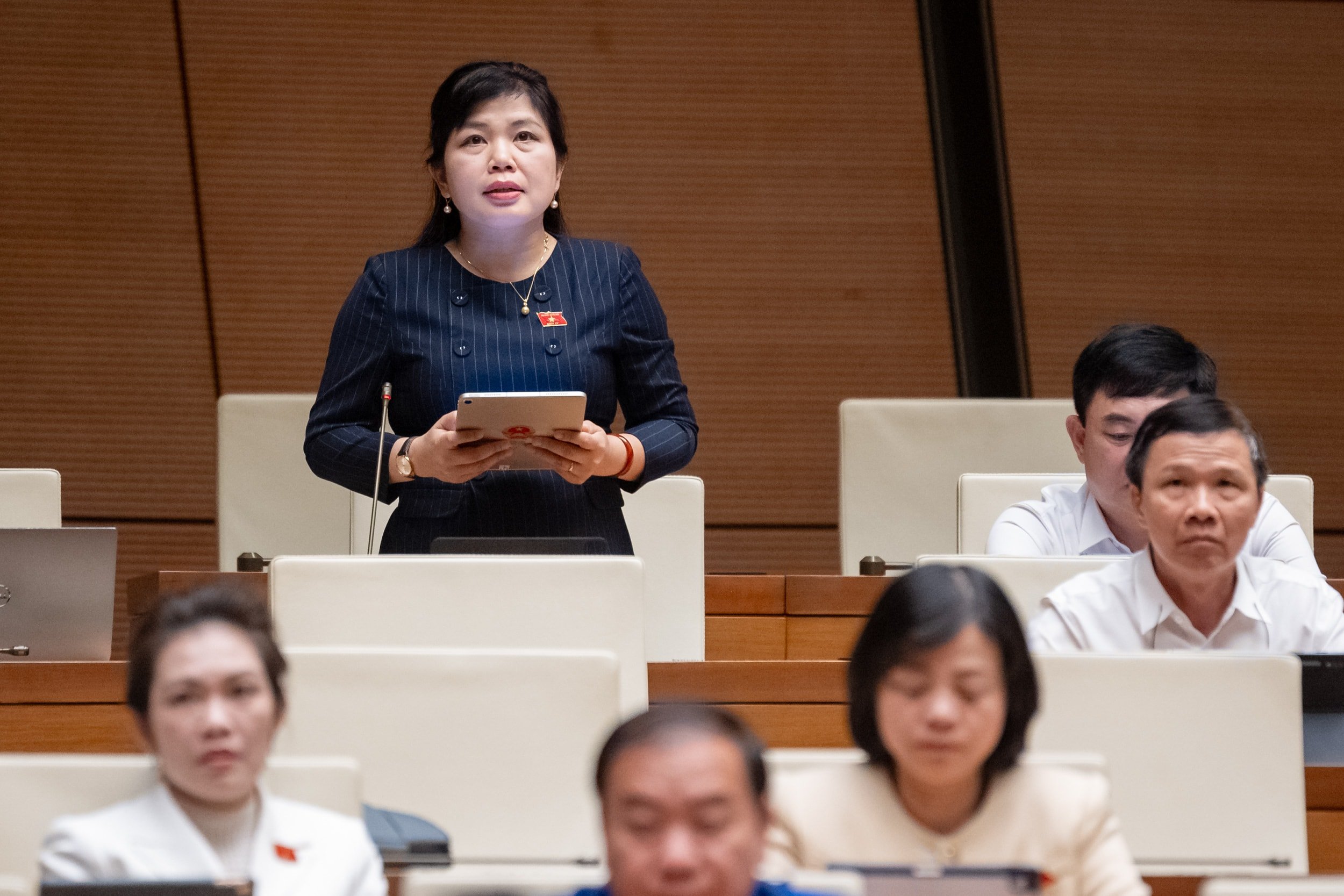
National Assembly Deputy Nguyen Thi Thu Ha (Quang Ninh) delivers a speech. Photo: Pham Thang
Based on research reports and local realities, delegate Nguyen Thi Thu Ha proposed that the environmental impact assessment (EIA) process should be improved to ensure quality, sufficient technical and technological information before assessment; and that a streamlined, online assessment mechanism should be added for low-risk projects to shorten time and costs. She also suggested clearly defining the authority, transitional basis, and criteria for decentralizing environmental permits, ensuring consistency and avoiding overlaps.
According to the delegates, it is necessary to clarify the scope and subjects required to conduct environmental impact assessments (EIAs) or exempted from environmental obligations, especially for expansion projects, capacity upgrades, or projects linking production chains. At the same time, consideration should be given to exempting or simplifying trial operation obligations for established facilities that do not change technology, in order to reduce costs and align with actual production practices.
Regarding wastewater treatment in industrial zones and clusters, delegate Nguyen Thi Thu Ha noted that many supporting areas of industrial zones currently have to invest in separate wastewater treatment systems, leading to waste and difficulties in management. Meanwhile, industrial zones, clusters, or production, business, and service areas located close together are not yet permitted to share a centralized wastewater treatment system, despite having excess capacity. Furthermore, there are no clear criteria regarding the stability and long-term nature of connections, leading to the risk of exploiting "temporary connections" to evade environmental permits.
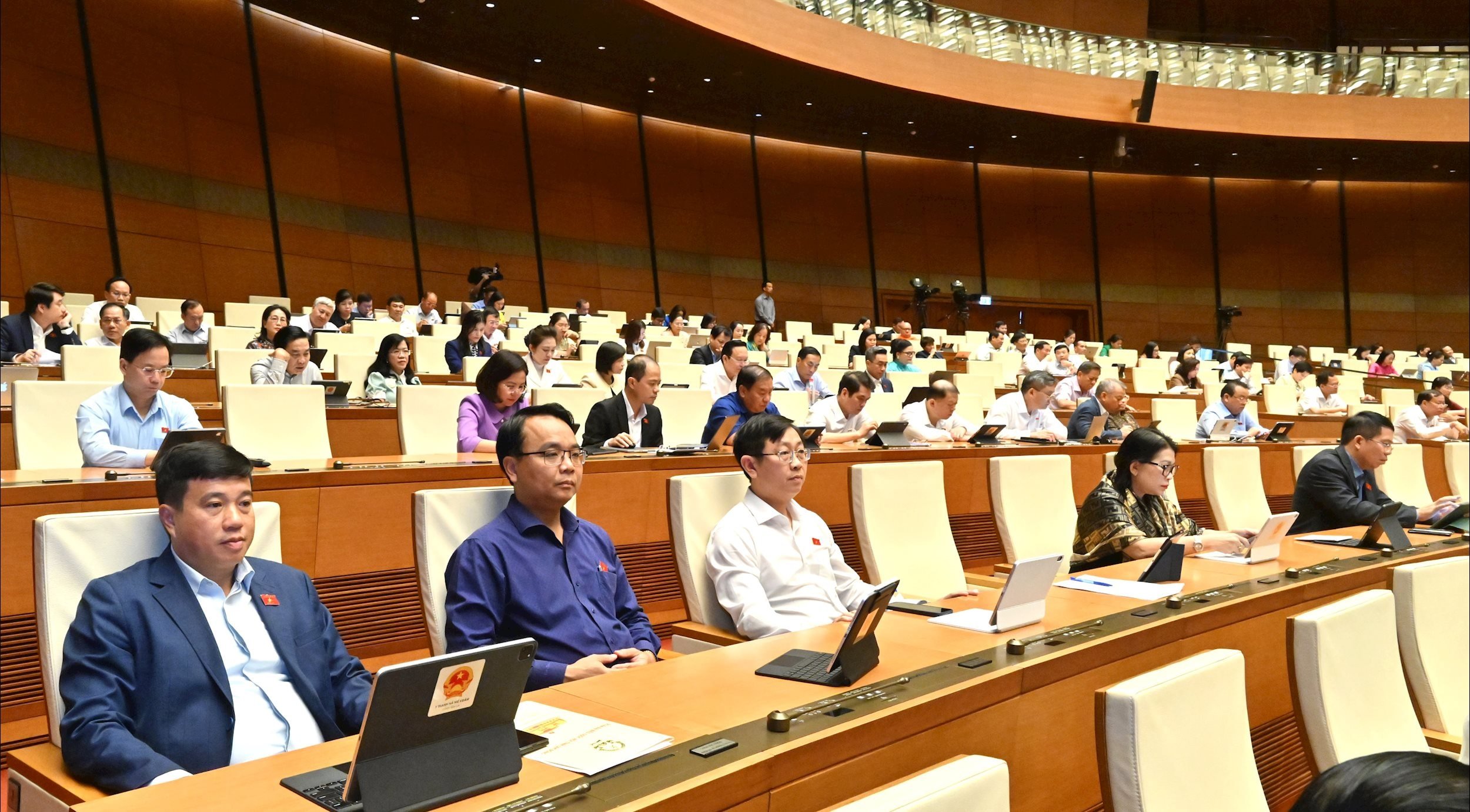
Delegates attending the session. Photo: Quang Khánh
Therefore, delegates proposed adding a flexible mechanism to allow shared connection to the centralized wastewater treatment system between industrial zones, clusters, or adjacent facilities with suitable technical conditions. Simultaneously, specific regulations should be established to ensure the safety, stability, and long-term sustainability of the connection plan, avoiding superficial measures and ensuring investment efficiency and centralized environmental management. Specific standards should also be issued regarding the reuse of domestic and industrial wastewater to ensure efficient and economical water use.
Regarding state management, delegate Nguyen Thi Thu Ha pointed out that many tasks related to management, inspection, handling violations, and responding to environmental incidents have been decentralized from the district level down to the commune level, while the capacity, personnel, and resources of the commune level are limited. “Decentralization without guidance, training, and support mechanisms easily leads to overload and reduced effectiveness. On the other hand, the authority to impose administrative penalties in the environmental field lacks clear criteria and overlaps between different levels,” the delegate emphasized.
Based on this reality, delegates proposed that appropriate decentralization is necessary, along with supplementing mechanisms for support, training, human resource allocation, and funding for the grassroots level to ensure the effective implementation of new tasks; clarifying criteria for determining the authority to impose penalties and manage administrative violations related to the environment, avoiding duplication, and ensuring transparency and feasibility. A centralized Environmental Fund should be established to handle environmental issues in businesses, especially those with a significant impact on the environment, supporting investment in environmental infrastructure at the grassroots level, prioritizing areas under pollution pressure or with low incomes.
The implementation of policies and laws on environmental protection must be strict.
Concerned about the implementation of legal regulations on the collection of specific types of waste, National Assembly Deputy Nguyen Thi Hue (Thai Nguyen) stated that technological waste and solar panels are emerging as a serious challenge to the global environment. The rapid development of science and technology has led to a large number of electronic devices, components, and solar panels reaching the end of their lifespan, creating a source of waste containing many heavy metals and toxic chemicals.
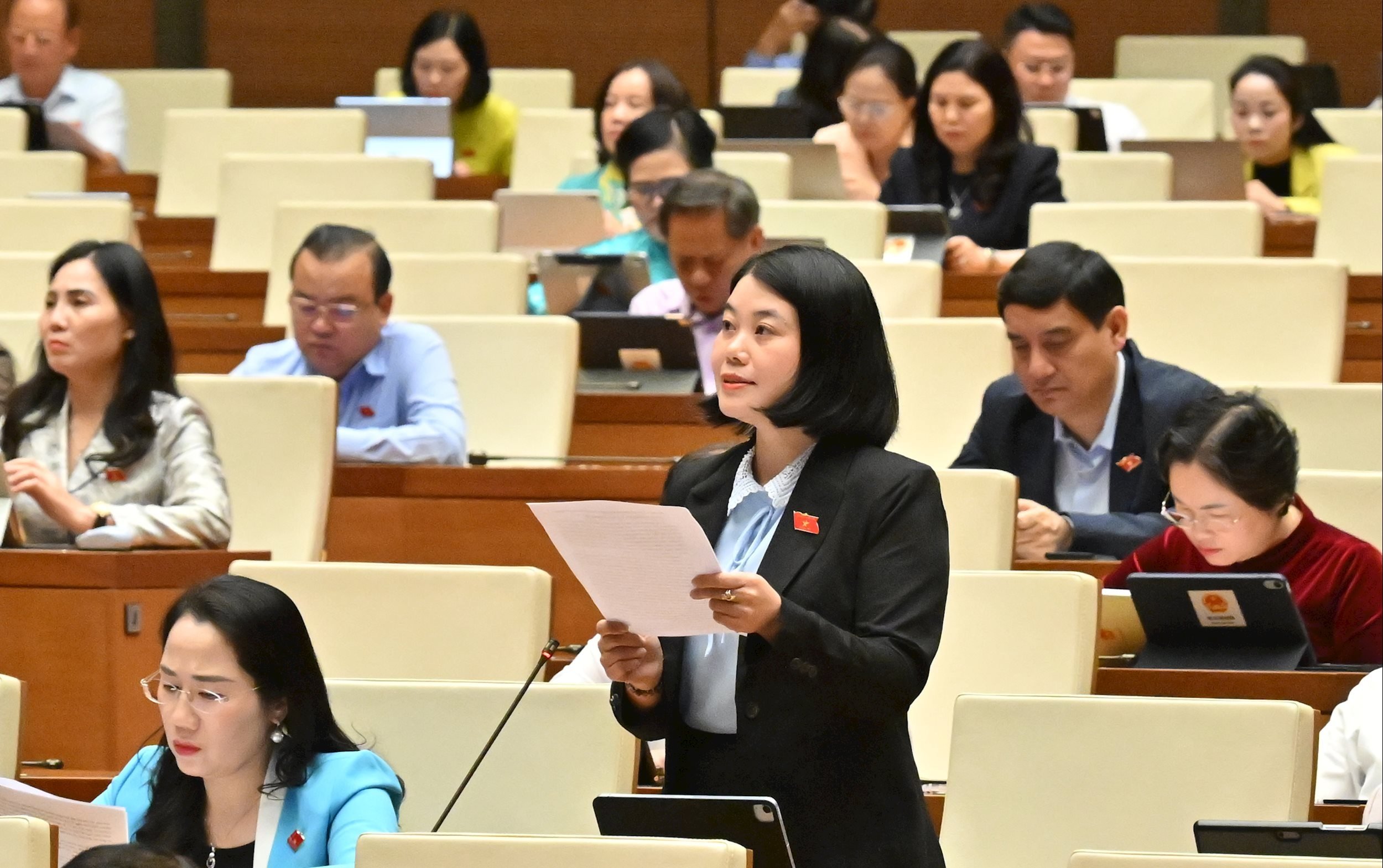
National Assembly Deputy Nguyen Thi Hue ( Thai Nguyen ). Photo: Quang Khanh
In fact, our country has considered the risks associated with specific types of waste and prepared response plans. Specifically, the 2020 Environmental Protection Law and its implementing regulations contain several provisions for managing these types of special waste.
However, Representative Nguyen Thi Hue suggested that, in addition to regulations requiring manufacturers and importers to recover and recycle products at the end of their life cycle, it is necessary to establish national standards for the collection, transportation, and processing of technological waste and solar energy batteries. She also proposed encouraging a circular economy through the reuse of components and materials, and reducing the exploitation of raw resources.
In addition, according to the delegates, attention should be paid to developing clean recycling technologies; raising awareness among people and businesses; encouraging the "exchange electronic waste for gifts" model, centralized collection at supermarkets and schools; and supporting green businesses with initiatives to process and recycle technological waste.
To improve the effectiveness of implementing environmental protection policies and laws, National Assembly Deputy Nguyen Cong Hoang (Thai Nguyen) proposed that there should be a mechanism and pilot programs in some localities to say no to plastic bags and plastic bottles. He suggested establishing assessment tables and post-audits of environmental criteria, similar to economic indicators used in emulation campaigns. He also proposed mandatory public disclosure of environmental indicators nationwide, encouraging the socialization of waste and environmental treatment technologies, and providing incentives for businesses. In particular, the deputy emphasized the need for strict implementation of policies and laws to enhance their effectiveness.
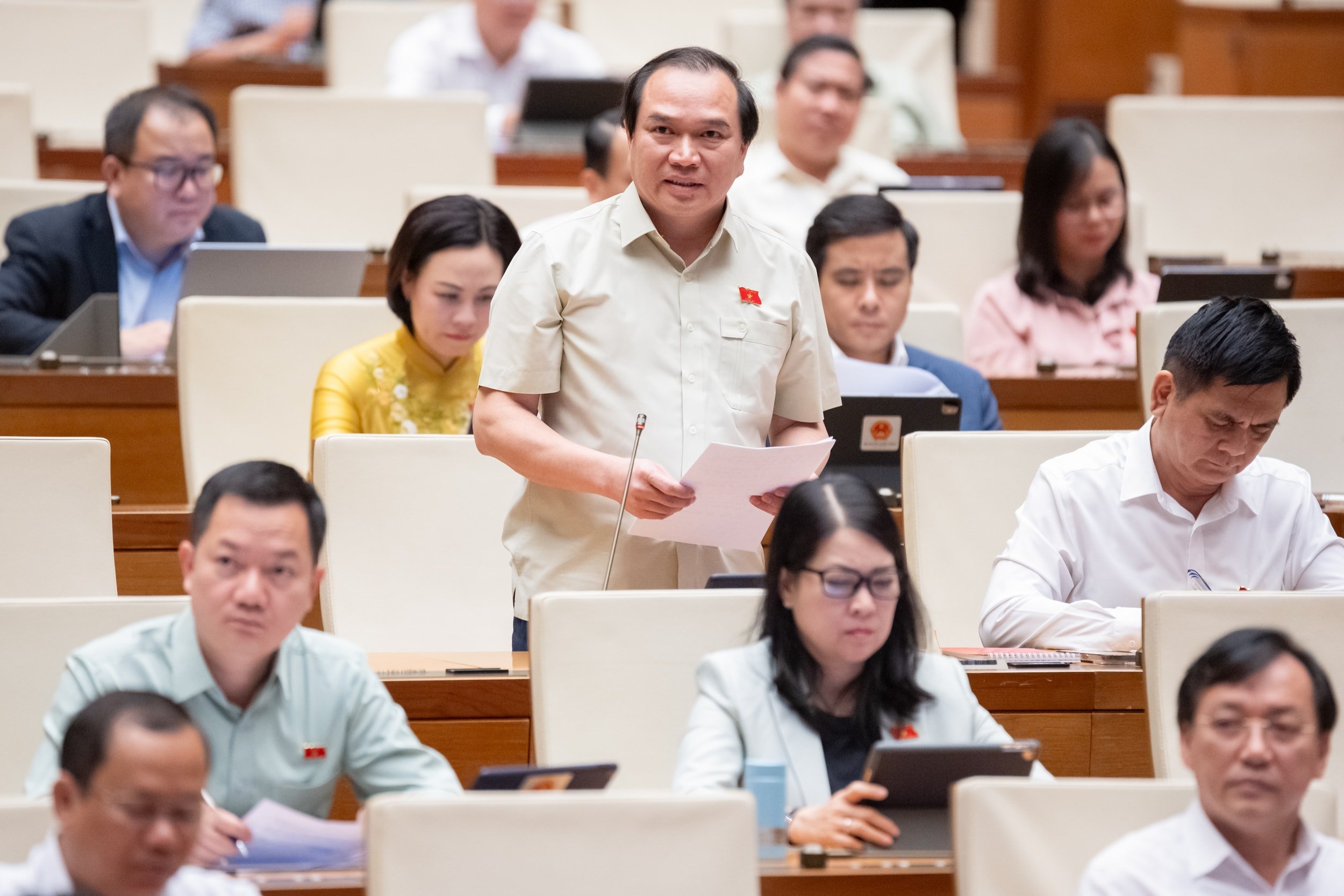
National Assembly Deputy Nguyen Cong Hoang (Thai Nguyen). Photo: Pham Thang
Earlier, at the session on the morning of October 28, National Assembly Deputy Ha Hong Hanh (Khanh Hoa) emphasized that one of the new and strategically significant points of the 2020 Environmental Protection Law is that, for the first time, it clearly stipulates the domestic carbon market mechanism, including greenhouse gas emission quotas, carbon credits, and a national carbon exchange. “This is a crucial turning point, demonstrating Vietnam’s innovative thinking in greenhouse gas management, consistent with international commitments that our country has participated in, especially the Paris Agreement on climate change and the commitment to achieve net zero emissions by 2050, which the Prime Minister announced at COP26,” the deputy stressed.
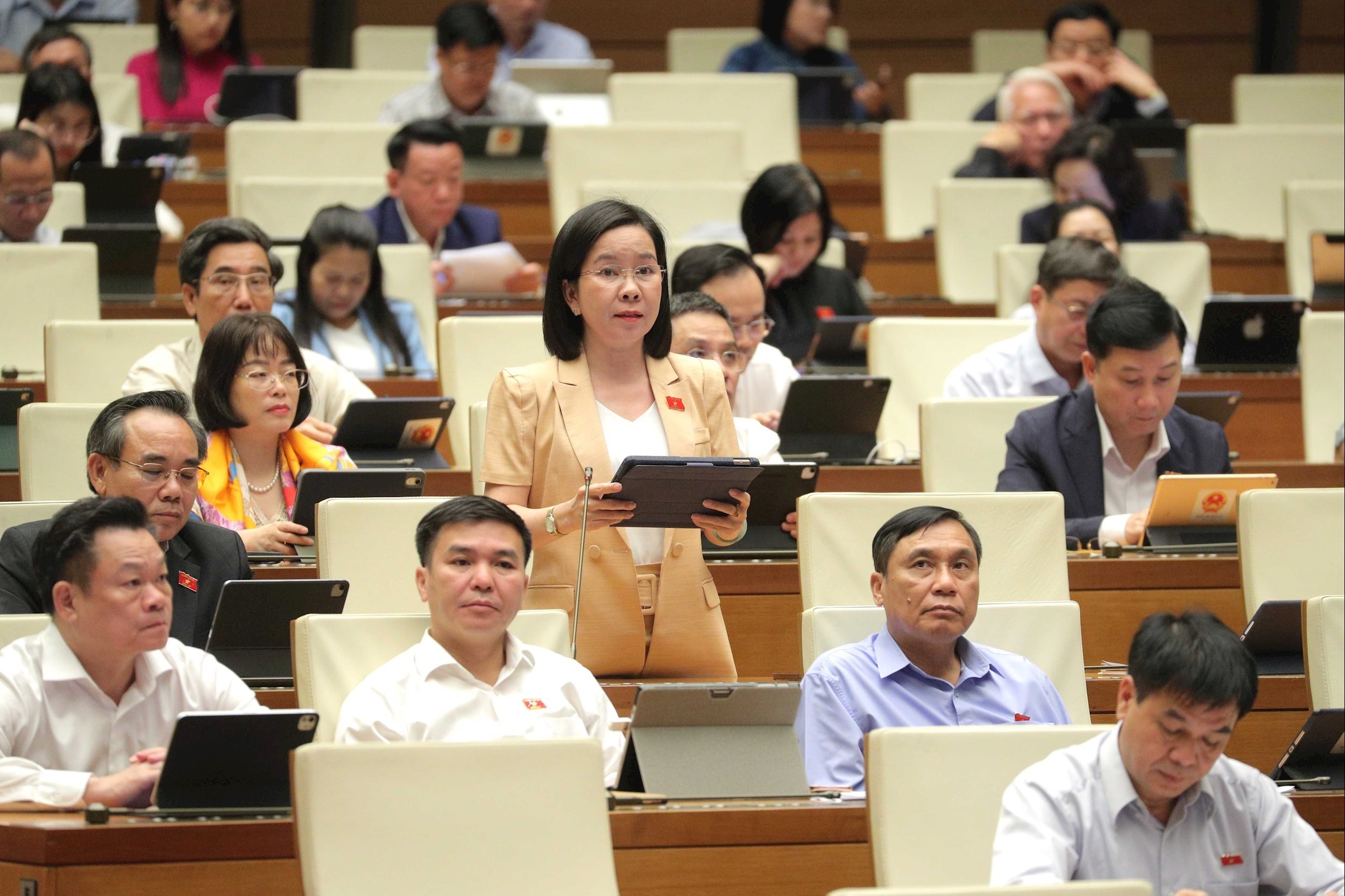
National Assembly Deputy Ha Hong Hanh (Khanh Hoa). Photo: Ho Long
The carbon credit trading mechanism is a market-based economic tool that encourages businesses and organizations to reduce greenhouse gas emissions, while also creating a source of green finance for reinvestment in sustainable development activities. Furthermore, Vietnam has many favorable conditions for developing this mechanism.
Therefore, delegate Ha Hong Hanh proposed completing the legal framework as soon as possible, especially the Decree on the operation of the carbon trading floor and specific regulations on the allocation and trading of emission quotas. She also suggested building a national database system on greenhouse gas emissions, unified from the central government to enterprises. Simultaneously, she proposed supporting businesses in their transition through policies on training, consulting, green credit, and tax incentives for pioneering enterprises in reducing emissions, as well as supporting audit costs and credit registration for small and medium-sized enterprises.
"We need to participate more deeply in regional and global carbon trading mechanisms to expand the output for Vietnamese carbon credits, avoiding being 'confined' to the domestic market," delegate Ha Hong Hanh emphasized.
Source: https://daibieunhandan.vn/phan-cap-phu-hop-va-ho-tro-cho-cap-co-so-thuc-hien-nhiem-vu-moi-10393327.html










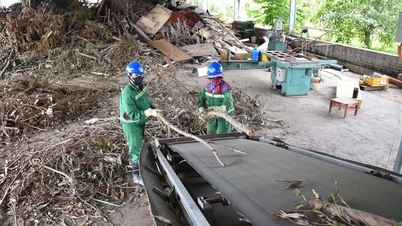



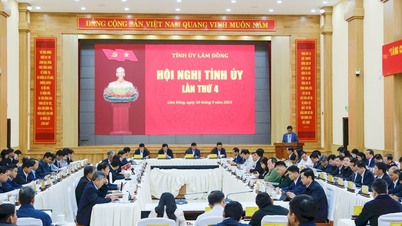




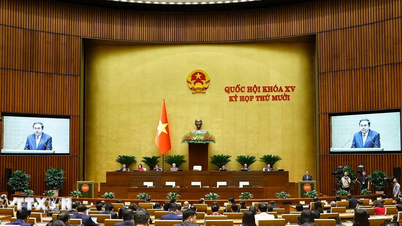

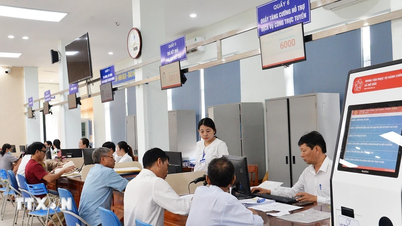
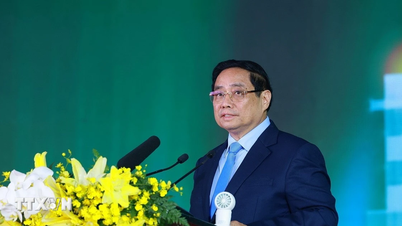
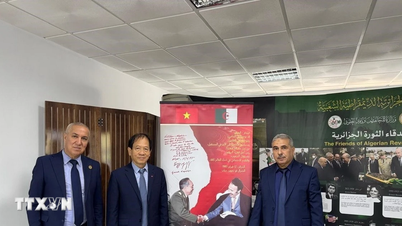
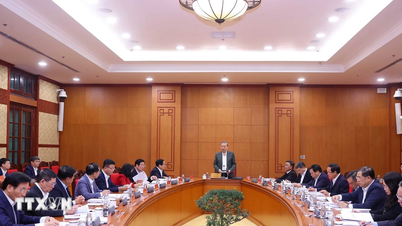
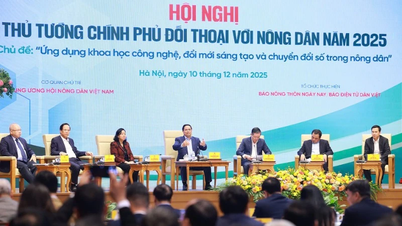





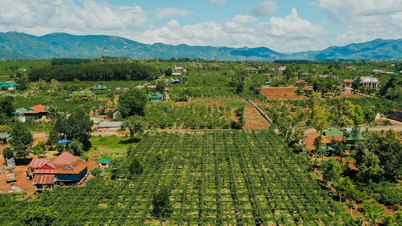
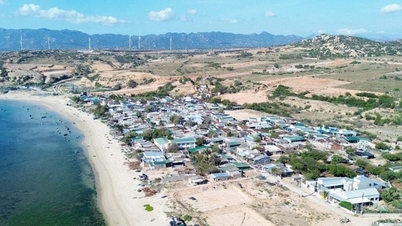
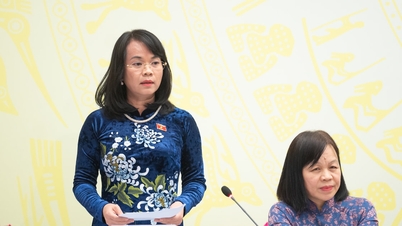
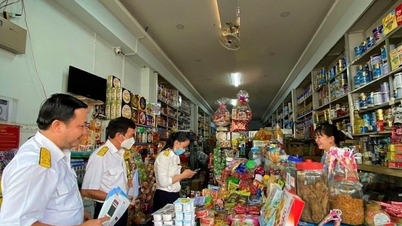

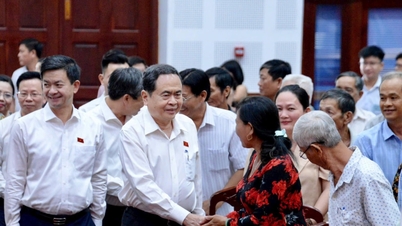














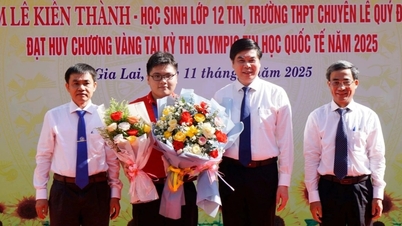


















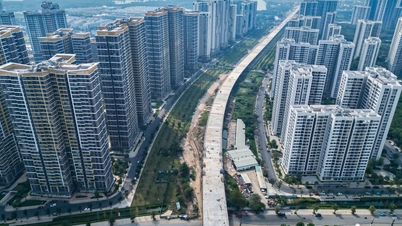





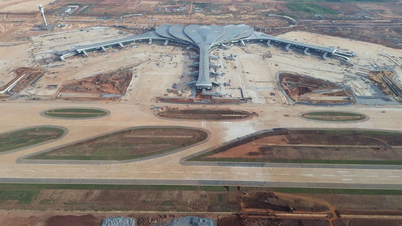
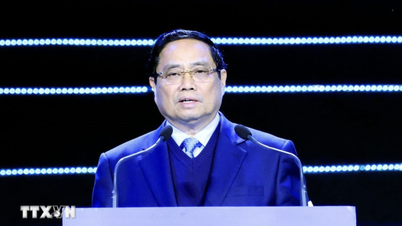
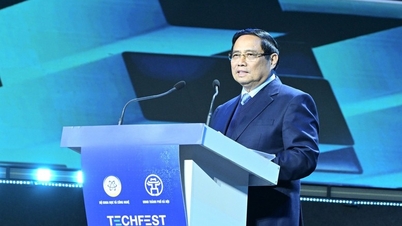


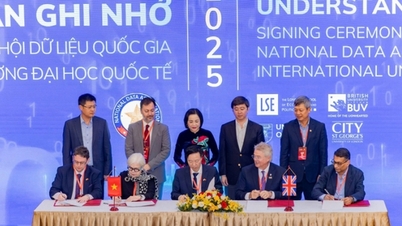

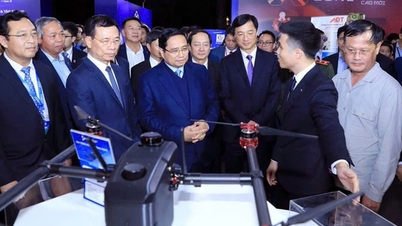


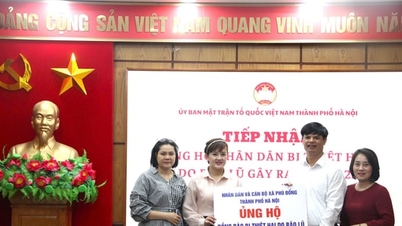
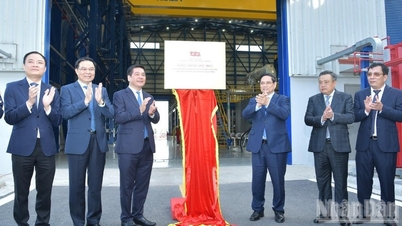

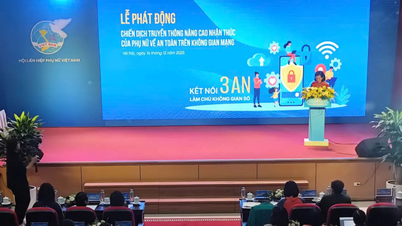
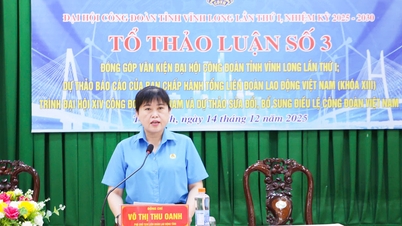
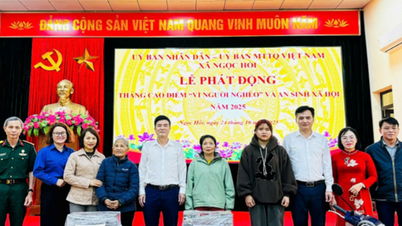














Comment (0)